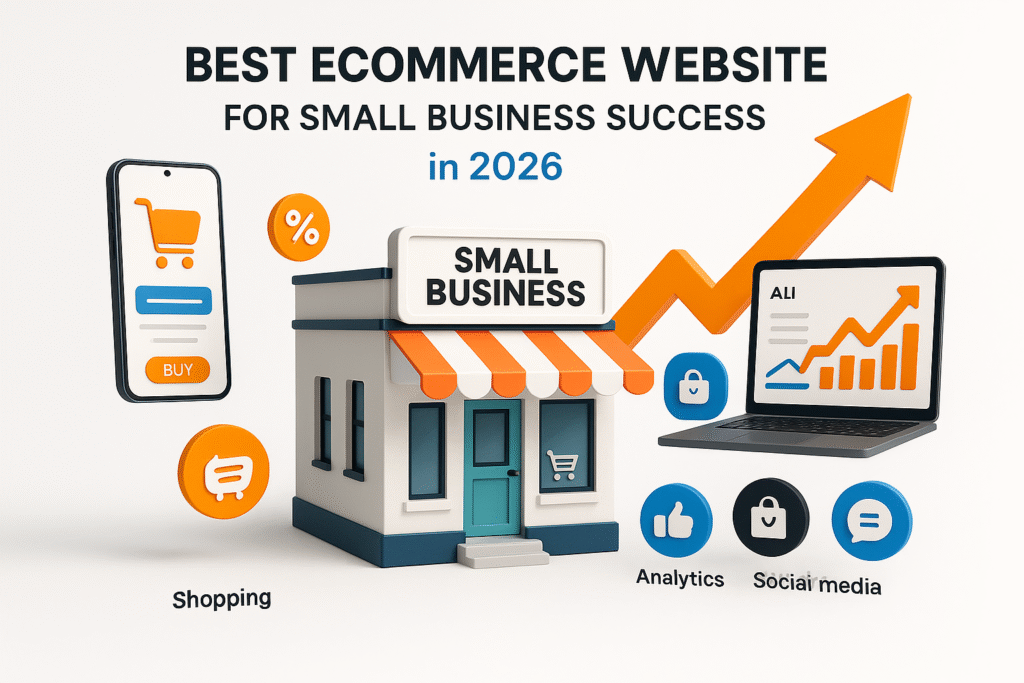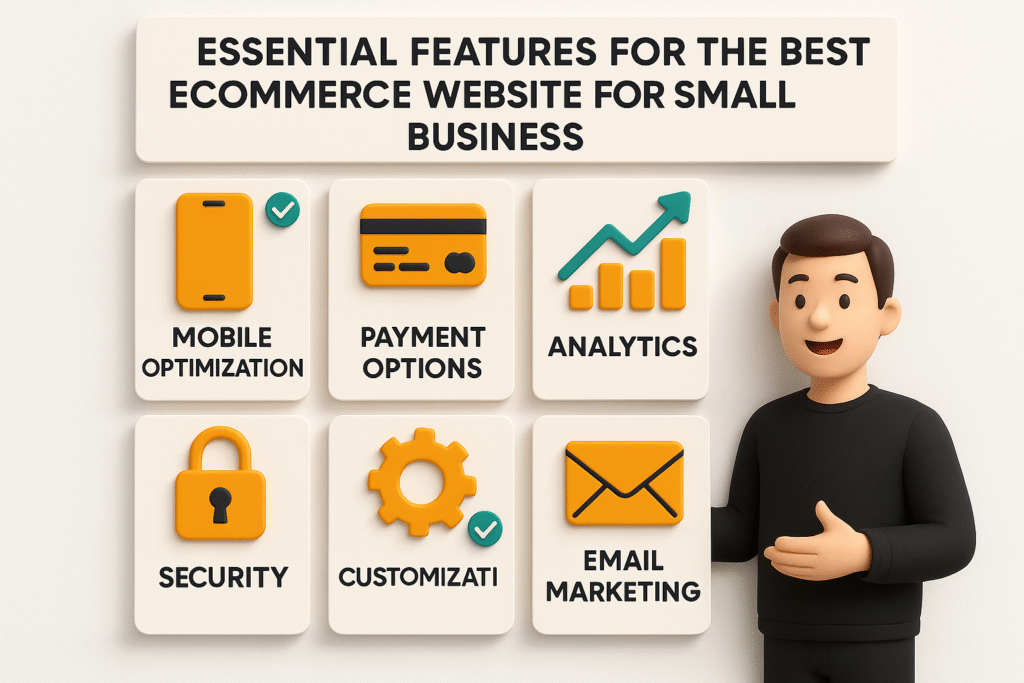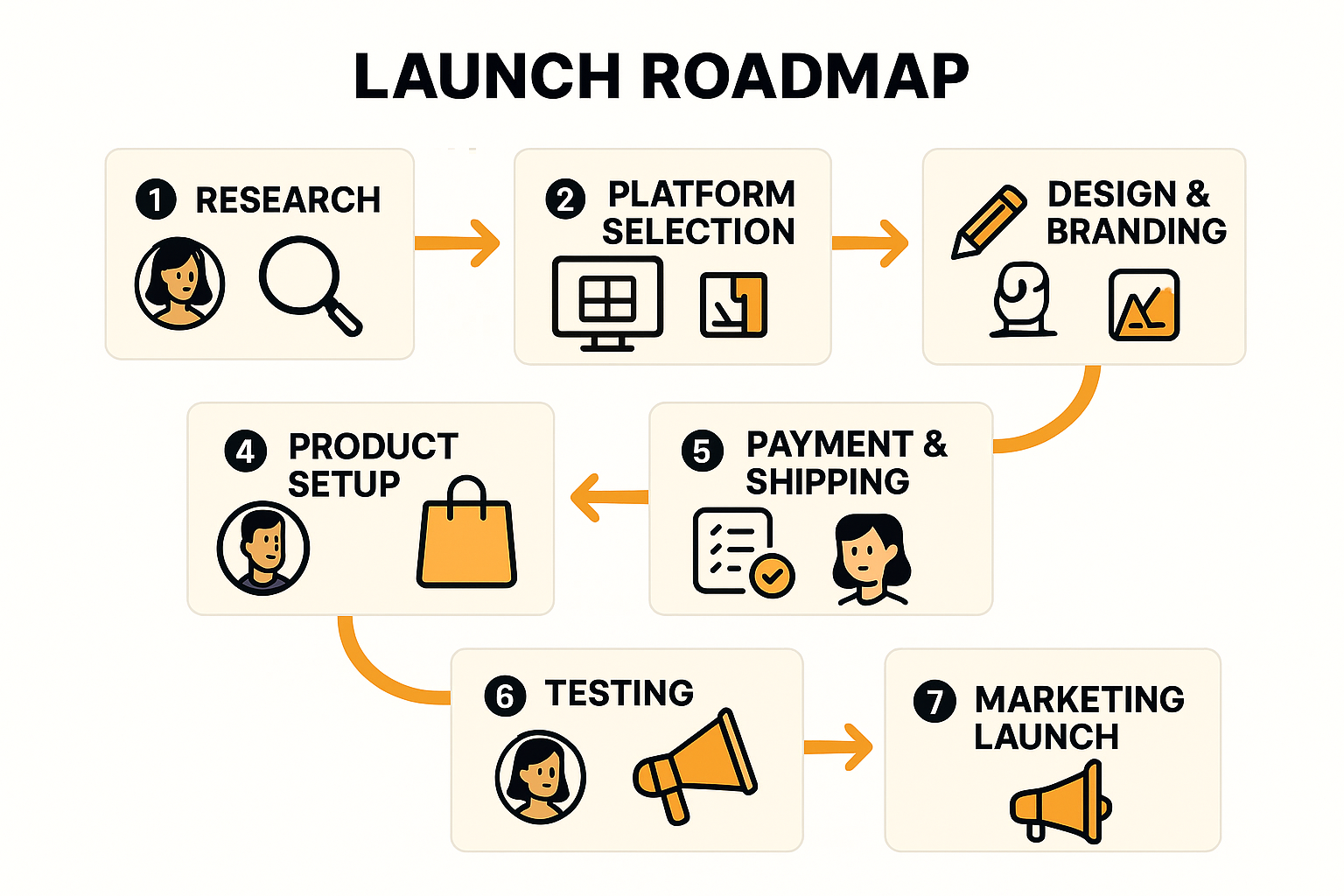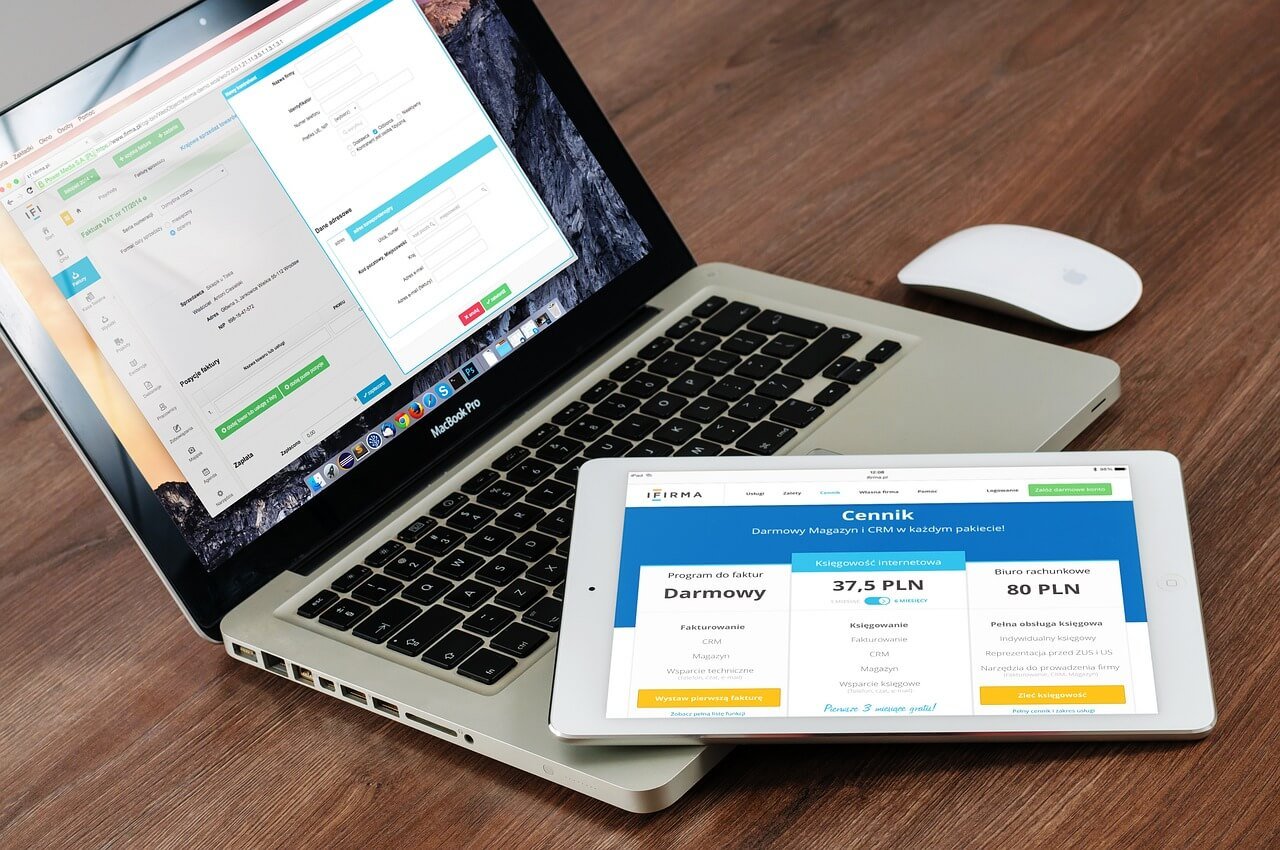Choosing the best ecommerce website for small business operations can feel overwhelming when you’re running a company with limited resources and time. With over 27 million ecommerce websites worldwide and countless platforms promising success, how do you know which solution will actually help your business thrive? The truth is, finding the best ecommerce website for small business success isn’t just about features, it’s about discovering the perfect match for your specific needs, budget constraints, and long-term growth objectives.
Global ecommerce sales are projected to exceed $6.83 trillion in 2025, with small businesses capturing an increasingly larger share of this lucrative market. By 2026, online shoppers will reach 2.86 billion people worldwide, creating unprecedented opportunities for small businesses ready to establish their digital presence. But success requires more than just setting up a basic online store. You need the best ecommerce website for small business growth that supports your expansion without draining your budget or requiring extensive technical expertise.
According to Statista’s comprehensive ecommerce research, the ecommerce landscape continues evolving rapidly, making it crucial for small businesses to choose platforms that adapt to changing consumer behaviors and technological advancements. This guide helps you navigate these choices and select the best ecommerce website for small business operations in 2026.

Why Finding the Best Ecommerce Website for Small Business Matters
Not all ecommerce platforms are created equal, especially when addressing small business requirements. While enterprise solutions like Adobe Commerce come with hefty price tags starting at $22,000 annually, small businesses need affordable, scalable options that deliver results without requiring a computer science degree.
The best website for ecommerce small business operations should offer three critical advantages that directly impact your bottom line. First, it must be cost-effective with transparent pricing structures and no hidden fees that gradually eat into your profit margins. Transaction fees, payment gateway charges, and monthly subscriptions can quickly accumulate, so understanding the total cost of ownership becomes essential for budgeting accurately.
Second, the best ecommerce website builder for small business needs should be user-friendly enough that you can manage your store independently without hiring a full-time developer or technical expert. According to recent studies, 85.6% of people shop online monthly, and 70% prefer using smartphones for their purchases. Your platform must make it effortless to reach these mobile-first customers across all devices and screen sizes.
Finally, the right solution grows alongside your business. Small businesses that select the best ecommerce websites for small business with unlimited bandwidth and product listings successfully avoid costly platform migrations later. Look for solutions supporting multichannel selling capabilities, allowing you to reach customers on social media platforms, third-party marketplaces, and your own branded website from a single, unified dashboard.
When evaluating options for the best ecommerce software for small business operations, consider your industry-specific requirements carefully. Service-based businesses require robust booking systems and scheduling tools, while product sellers need strong inventory management and shipping integrations. If you’re exploring custom e-commerce development services, understanding standard platform limitations becomes even more important for future customization and scaling needs.
Top Platform Choices: Best Website Builder for Small Business Ecommerce
Selecting from dozens of available platforms requires understanding what each solution offers and where they excel for small business ecommerce website development. Here’s an honest breakdown of the top options for small businesses in 2026, based on comprehensive analysis from Shopify’s platform comparison guide and real-world performance data.
Shopify: The Best Ecommerce Website for Small Business Growth
Shopify remains the market leader with 30% of the top 1 million websites using the platform, making it arguably the best ecommerce website for small business scaling. Starting at $29 per month with a special $1/month introductory offer for three months, Shopify provides unlimited products, access to 100+ payment gateways, and seamless multichannel selling across Instagram, TikTok, Facebook, and major marketplaces.
The platform’s AI-powered Shopify Magic tool generates compelling product descriptions automatically, while Shopify Sidekick assists with store setup and ongoing optimization tasks. Transaction fees are eliminated when using Shopify Payments (2.9% + $0.30 per transaction), though third-party payment gateways incur an additional 2% platform fee.
Shopify excels in scalability and ecosystem strength with 8,000+ apps available, making it the best ecommerce website builder for small business owners planning significant growth trajectories. The platform handles enterprise-level traffic while maintaining the simplicity small businesses need for daily operations.
Woo Commerce: Maximum Customization for Tech-Savvy Owners
Woo Commerce powers 3.1 million stores globally, more than Shopify, Squarespace, and Wix combined, establishing itself as the best website builder for small business ecommerce customization. This free WordPress plugin requires self-hosting starting at approximately $4 monthly but offers unmatched flexibility for tech-savvy store owners.
The platform’s open-source architecture means unlimited control over your small business ecommerce website functionality and design elements. However, essential features often require paid extensions, and recent data reveals Woo Commerce users pay 32% more for their complete technology stack compared to Shopify users.
Woo Commerce suits businesses already using WordPress or those with dedicated development resources available. Consider working with specialists who hire dedicated WordPress developers if you choose this route for optimal configuration and ongoing maintenance.
Squarespace: Design-First Approach
Squarespace offers stunning templates and built-in Acuity Scheduling, perfect for service-based businesses and creative professionals seeking the best website for small business ecommerce aesthetics. Plans range from $16 to $99 monthly, with unlimited products and storage included on all tiers.
The platform’s Blueprint AI creates personalized designs within minutes, while its intuitive drag-and-drop editor requires zero coding knowledge. Transaction fees start at 2% for regular products but drop to 0% on the $23/month Core plan. However, Squarespace’s smaller app library (only 25+ apps) compared to competitors restricts advanced functionality needs for growing businesses.
Wix: Beginner-Friendly Entry Point
Wix provides beginner-friendly tools with 2,000+ customizable templates and AI chatbot builder functionality. Pricing starts at $29 monthly for ecommerce features, including built-in email marketing, multichannel selling capabilities, and personalized SEO recommendations through SEMrush integration.
Wix recently introduced Adaptive Content technology, using AI to create dynamic web experiences based on individual visitor behavior and geographic location. However, storage limits and product caps make Wix less suitable for rapidly growing inventories, though it remains among the best ecommerce websites for small business just launching their first online store.
BigCommerce: Enterprise Features at Small Business Prices
BigCommerce targets high-volume sellers with enterprise-grade features at accessible pricing ($29-$299/month). The platform offers built-in B2B functionality, fully customizable checkout pages, and zero transaction fees regardless of your chosen payment gateway.
BigCommerce’s $29 Standard plan caps annual sales at $50,000, while the $105 Plus plan accommodates up to $180,000 in yearly revenue. The platform’s 1,200+ app marketplace and comprehensive API access enable extensive customization for the best ecommerce website store for small business operations requiring advanced capabilities.
For businesses needing even greater control beyond standard platforms, custom software development services can create tailored solutions perfectly matching your unique operational requirements and competitive positioning.
Essential Features for Your Best Ecommerce Website for Small Business
Understanding which features genuinely matter for small business ecommerce website success helps you avoid paying for unnecessary bells and whistles while ensuring you don’t miss critical functionality that drives conversions and customer satisfaction.

Mobile Optimization is Non-Negotiable
Mobile optimization represents an absolute requirement for the best ecommerce website for small business performance. Tablets demonstrate the highest ecommerce conversion rate at 3.1%, followed by desktops at 2.8% and smartphones at 2.3%. Your platform must deliver responsive design that adapts seamlessly across all devices, screen sizes, and orientations.
Test your best website for ecommerce small business store on multiple devices before launch to ensure consistent, high-quality user experiences regardless of how customers access your site.
Multiple Payment Processing Options
Multiple payment gateways reduce cart abandonment rates and build essential customer trust. Platforms supporting 100+ payment methods including Apple Pay, Google Pay, PayPal, and regional options convert significantly better than those with limited payment choices.
Stripe and PayPal typically charge around 2.9% + $0.30 per transaction, so factor these payment processing costs into your overall pricing strategy and profit margin calculations. Confirm your chosen platform supports payment methods popular in your specific target markets for optimal conversion rates.
Robust Inventory Management
Real-time stock tracking, automated low-stock alerts, and intelligent reordering capabilities save countless hours of manual work for the best ecommerce website builder for small business efficiency. If you sell both online and in physical locations, choose platforms with integrated point-of-sale systems that sync inventory across all sales channels automatically.
This prevents the frustrating scenario of selling your last item at a farmers market while a customer simultaneously orders it through your online store, avoiding disappointed customers and negative reviews.
Security and Trust Features
SSL certificates, PCI compliance standards, and secure payment processing represent baseline security requirements. Display trust badges prominently on product pages and checkout pages to reduce customer anxiety and boost conversion rates.
Platforms like Shopify include enterprise-level security infrastructure, while self-hosted solutions require you to manage security updates, patches, and monitoring independently through technical expertise or custom web app development services.
Advanced SEO Capabilities
Look for the best website for small business ecommerce platforms offering customizable meta titles and descriptions, clean URL structures, image alt text optimization, and automatic XML sitemap generation. Wix and Shopify lead in built-in SEO tools, with Wix providing personalized optimization recommendations through its Semrush partnership.
Check out our comprehensive guide on SEO for small businesses to maximize your organic search visibility and reduce customer acquisition costs through unpaid traffic channels.
Email Marketing Integration
Built-in email marketing tools drive impressive repeat purchases with an average 36:1 return on investment. Shopify Email eliminates additional subscription costs and automatically syncs with customer data for abandoned cart recovery sequences and personalized product recommendation campaigns.
Understanding web development mistakes to avoid ensures your best ecommerce website for small business launches smoothly and delivers excellent user experiences from day one, preventing costly redesigns and customer frustration.
When Custom Development Creates Your Best Ecommerce Website Store for Small Business
While platform builders work effectively for straightforward stores, certain scenarios demand custom development solutions. Recognizing when you’ve outgrown standard platforms saves significant time and prevents expensive rebuilds down the road.
Custom development makes strategic sense when your business model doesn’t fit template constraints and limitations. Subscription boxes with complex customization options, marketplace platforms connecting multiple sellers, or stores requiring unique pricing algorithms need flexible architectures that SaaS platforms fundamentally can’t provide.
Integration requirements often drive custom development decisions for the best ecommerce software for small business operations. If your business depends on specific ERP systems, custom CRM platforms, or proprietary inventory management software, ensuring seamless data flow becomes mission-critical. While platforms offer API access, complex integrations frequently require custom middleware that standard plugins simply can’t deliver reliably.
Custom solutions built with frameworks like Laravel or Node.js handle enterprise-level traffic loads without the subscription costs that scale proportionally with revenue on many SaaS platforms. Businesses processing thousands of daily orders often discover custom solutions prove more cost-effective long-term despite higher initial development investments.
Companies like RSquare Technologies specialize in creating the best ecommerce website for small business differentiation through custom web app development services that craft distinctive shopping experiences perfectly aligned with your brand vision and customer expectations.
Consider the hybrid approach of launching quickly on a platform builder and migrating to custom development as operational needs evolve. Our comprehensive guide on build vs buy vs outsource decision framework helps you evaluate which approach delivers the most financial and strategic value for your specific situation and growth trajectory.
Smart Budgeting for Your Best Website for Ecommerce Small Business
Understanding total ownership costs prevents unpleasant financial surprises and helps you allocate resources effectively across all business functions. Ecommerce expenses extend well beyond basic monthly platform subscriptions.
Platform subscription fees form your baseline recurring cost. Entry-level plans range from $3.99 (Hostinger) to $39 (Shopify) monthly, with annual billing typically offering 10-20% discounts. However, you’ll likely need mid-tier plans ($29-$79/month) to access essential features like abandoned cart recovery, advanced reporting dashboards, and professional email accounts.
Transaction and payment processing fees significantly impact overall profitability margins. Payment gateways charge approximately 2.9% + $0.30 per transaction on average, while some platforms add 1-2% transaction fees for using third-party payment processors. On $50,000 in annual sales volume, these fees total $1,465-$2,000, making zero-transaction-fee platforms particularly attractive for high-volume businesses.
Design and theme investments vary dramatically based on customization needs. Free themes work adequately for testing concepts, but professional themes ($100-$400) deliver superior user experiences and higher conversion rates. Custom design projects range from $999 for basic theme customization to $5,000-$50,000 for completely bespoke experiences tailored to your brand identity.
App and extension subscriptions accumulate quickly across business operations. Email marketing ($15-$300/month), advanced shipping calculators ($9-$50/month), review platforms ($15-$100/month), and inventory management tools add up rapidly. Budget $50-$200 monthly for essential apps initially, scaling upward as business complexity increases.
Marketing budget allocation deserves dedicated planning attention. Social commerce will reach $2.9 trillion by 2026, creating significant opportunities for small businesses to reach customers where they already spend time. Plan to invest 10-20% of revenue in marketing during your first year, adjusting based on customer acquisition costs and lifetime value calculations.
Explore outsourcing software development for startups to understand how strategic partnerships can reduce development costs while maintaining quality standards and accelerating time-to-market for your best ecommerce website for small business launch.
Your Launch Roadmap: Building the Best Ecommerce Websites for Small Business

A systematic approach to launching your store prevents common pitfalls and establishes a solid foundation for long-term success. Follow this proven implementation roadmap for the best ecommerce website for small business results.
Step 1: Research and Planning (Week 1) Define your niche and target audience thoroughly through market research. Identify gaps in competitive offerings, clarify exactly who you’re serving, and understand their pain points intimately. Create detailed buyer personas including demographics, shopping behaviors, purchase triggers, and preferred communication channels.
Step 2: Platform Selection (Week 1-2) Based on your budget constraints, technical skills assessment, and feature requirements list, choose the best website builder for small business ecommerce that aligns with your specific needs. Sign up for free trials to test interfaces and workflows before committing financially. Most platforms offer 14-30 day trials, providing adequate time to build test stores and evaluate real-world usability.
Step 3: Design and Branding (Week 2-4) Select or customize templates reflecting your brand personality and values. Implement responsive web design principles ensuring seamless experiences across all devices. Configure intuitive navigation structures, create essential pages (About, Contact, Shipping, Returns), and establish visual consistency. Review common e-commerce mistakes to avoid before finalizing your design decisions.
Step 4: Product Setup (Week 3-5) Upload high-quality product images showing multiple angles with zoom functionality enabled. Write detailed descriptions addressing common customer questions and set competitive pricing based on thorough market analysis. Optimize for SEO with keyword-rich titles, comprehensive meta descriptions, and descriptive alt text. Use AI tools like Shopify Magic to accelerate content creation while maintaining quality standards across your small business ecommerce website catalog.
Step 5: Payment and Shipping Configuration (Week 4-5) Set up payment gateways, complete test transactions, and configure accurate tax calculations for your jurisdictions. Define shipping zones, competitive rates, and efficient fulfillment processes. Over half of customers prioritize fast, reliable shipping, so establish clear delivery expectations and tracking capabilities.
Step 6: Testing Phase (Week 6) Complete test purchases from multiple devices, verify automated email notifications, check mobile responsiveness thoroughly, and ensure all navigation links function correctly. Have friends and family navigate your store independently to identify usability issues you might overlook. Test checkout flows, abandoned cart recovery sequences, and confirmation emails across different email clients.
Step 7: Launch and Marketing (Week 7+) Announce your launch through social media channels, email lists, and local business networks. Implement SEO best practices from our best SEO services for small business guide. Plan a comprehensive promotional calendar mixing content marketing, social media engagement, and strategic paid advertising.
Monitor analytics daily during your first month to quickly identify and address emerging issues. Remember, 24% of online shopping occurs during holiday seasons, so timing your launch strategically can provide significant momentum. For technical support needs, consider hiring dedicated developers who can help optimize performance and troubleshoot issues efficiently.
Take Action: Launch Your Best Ecommerce Website for Small Business Today
Launching a successful ecommerce store in 2026 requires more than simply picking a platform name from a list. It demands strategic thinking about your unique business requirements, realistic budget constraints, competitive positioning, and ambitious long-term growth objectives. The best ecommerce website for small business success combines user-friendly technology, cost-effective pricing structures, and genuine scalability to support your journey from nervous first sale to thriving, sustainable enterprise.
At RSquare Technologies, we deeply understand that sometimes off-the-shelf solutions aren’t enough for creating the best ecommerce website for small business competitive differentiation and sustainable growth. Our custom e-commerce development services help ambitious small businesses create unique online experiences that drive meaningful conversions and build lasting customer relationships based on trust and value delivery.
Ready to transform your small business with the perfect ecommerce solution? Contact us today for a free, no-obligation consultation and discover which platform or custom solution will deliver the best measurable results for your unique business needs, target audience, and competitive landscape.
Let’s discuss your vision honestly, evaluate your available options objectively, and create a practical, realistic roadmap for your best ecommerce website for small business success in 2026 and beyond. Don’t let another valuable day pass without establishing your professional online presence. Your future customers are already actively searching for businesses exactly like yours right now.



